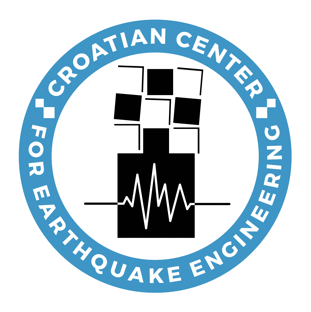Europe
 |
Croatian Centre for Earthquake Engineering (CCEE)
|
| Outline In Croatia, there is a long tradition of research in the field of earthquake engineering, but for decades we relied mainly on other regional centers (for example, IZIIS). After becoming an independent country ( 1991), most issues related to earthquake engineering were ignored (considering many other major problems), i.e. experts worked individually /scattered at universities all over Croatia, including in Zagreb. Experts and scientists from the Faculty of Civil Engineering (FCE), University of Zagreb , have participated for many years in various regional and international scientific projects, conferences and workshops on earthquake related topics and are authors of numerous scientific papers published in regional and international journals. They have acquired their knowledge through participation journals. They have acquired their knowledge through participation in projects, training courses and workshops on disaster risk reduction, post earthquake damage assessment and rescue team collaboration. They have expanded their field experience by participating in damage assessments after past devastating regional earthq uakes and floods. |
|
Earthquake Engineering Research Centre
|
|
| Outline The Earthquake Engineering Research Centre of the University of Iceland was established in the year 2000 with a special contract between the University of Iceland, Ministry of education, Ministry of justice, Township of Árborg and the Civil Defence department of Iceland. The main operation of the EERC consists of basic research, contract research, training of students for research, and building facilities for engineering education. The EERC is a part of the Faculty of Civil and Environmental Engineering of University of Iceland and has been active in engineering seismology and earthquake engineering research in Iceland for more than two decades. The research focus of EERC lies in earthquake ground motion monitoring and modelling, seismic hazard modelling and assessment, seismic design of structures, structural vibration monitoring, seismic risk reduction, community outreach and communication, and societal resilience to seismic risk. The EERC operates and maintains the only country-wide strong ground motion monitoring system in Iceland. It [detail] --> |
|
 |
Centre for Disaster Resilience, University of Salford
|
| Outline Our aim is to be a global leader in built environment research and education that develops societal resilience to disasters. Within this holistic societal goal lies a more specific community objective of building resilience and adaptation measures. In achieving this aim the centre's strategy is to focus on the strengths of the existing multidisciplinary membership, our portfolio of funded research projects, our existing postgraduate research community and our national and international collaborative partners. RESEARCH TOPICS
CDR has led and contributed to a wide range of projects within the broad theme of disaster resilience:
[detail] --> |
|






